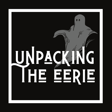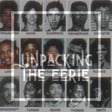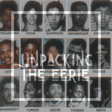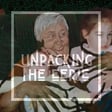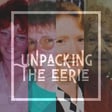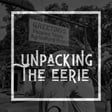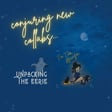
12. Lorena, Our Queen (feat. Jill Zawisza from WOMAN, Inc.)
CW: domestic, sexual, physical violence, bodily harm, racism, xenophobia
On June 23, 1993, Lorena Gallo (then, Bobbit) would come to be known as the woman from Manassas, Virginia who, in a rage, severed her husband’s penis and threw it out the window of her car. What was missing from this story, in all of the sensational media coverage, is the extreme abuse she had endured from him the years leading up to this. In our first collaborative episode ever, Shaena and Jill Zawisza*, Co-director at WOMAN Inc., cover this incident, and most importantly, Lorena’s story.
Join in as we uncover the details and political context of this case, break down dynamics of domestic violence, and the role we all can play in supporting survivors.
*Jill Zawisza (she/her/hers) currently serves as Co–Director at WOMAN Inc. She has been in the anti-DV movement since 1996, and has been with W.O.M.A.N., Inc. for 13 years. In addition, Jill has served as an anti-Sexual Assault advocate and counselor. She represents W.O.M.A.N., Inc. in the community, aids in program development, provides mentorship to staff, and participates in active community outreach. Her current focus is offering counseling and advocacy to survivors, and delving into how to share power & dismantle white supremacy culture within the leadership structure at W.O.M.A.N., Inc., and beyond.
WOMAN, Inc. is a San Francisco-based nonprofit that has been serving the city and larger Bay Area since 1978. They support survivors of domestic violence and their loved ones on their healing journeys, building value-rich networks designed to address intersections of violence. Learn more about WOMAN,Inc. at womaninc.org (@woman.inc)
Support the Lorena Gallo Foundation here: https://lorenagallofoundation.org/our-programs/
Learn more about Survived & Punished here: https://survivedandpunished.org
Find a local domestic violence program near you at https://www.domesticshelters.org or call the 24/7 National DV Hotline at 1.800.799.SAFE (7233) TTY 1.800.787.3224
Sources
Outro last updated April 2023
FYI: we've recently unpublished older episodes as we are in process of re-editing for a smoother flow & audio experience. they will be available again as we finish.
Thank you for listening to our passion project <3 You can find us on social media here! We're a team of 2 people & have always been ad-free. If you are enjoying, please consider supporting our sustainability on Patreon or by making a one-time contribution via CashApp $unpacktheeerie.
- your grateful hosts
